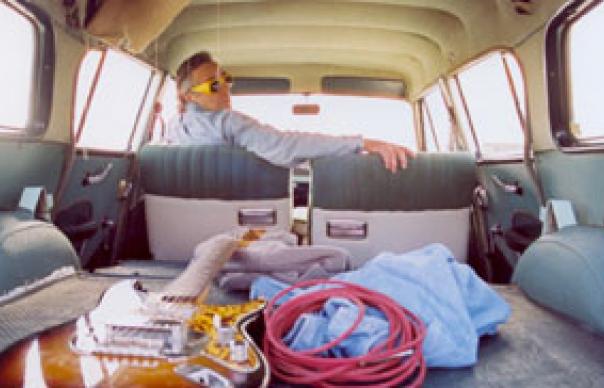After a decade of travels that have taken him from Timbuktu to Cuba, Ry Cooder has come home to shine a light on a shameful episode in LA’s civic history. For this son of white middle-class Santa Monica, the 1950 razing of Chicano enclave Chávez Ravine to make way for Dodger Stadium is a matter of enduring injustice. The good news is that the event has inspired a record bursting with anger, sensuality and humour – in City Of Quartz author Mike Davis’ words, “a magical-realist street opera” about East LA and its vibrant life. The album is a giant tostada of influences: Davis himself, James Ellroy, Leiber & Stoller, doo-wop nights at the legendary El Monte Legion stadium, and the kings of good-time conjunto and corrido dance music. Assisting him in realizing this 70-minute song-suite is a loose group of Mex-American legends: Chicano figurehead Lalo Guerrero, Pachuco boogieman Don Tosti, Little Willie G of Eastside rockers Thee Midniters. Highlights on the album include the playfully swaying “Poor Man’s Shangri-La”, the slow and spookily beautiful “El UFO Cayo”, featuring Juliette Commagere, and the Tom-Waits-esque “It’s Just Work for Me”, a shrugging apologia from one of Chávez ‘s bulldozers. Despite being ensconced in the Warner-Reprise mafia of the late ‘60s and ‘70s, Cooder’s music has generally been made in opposition to SoCal norms, burrowing into forgotten nooks with a scholarly curiosity. With Chávez Ravine he has performed another ethnomusicological miracle, opening a can of worms while drawing us deep into the musical heart of a lost community. “Only memories remain,” Ersi Arvizu of the Sisters sings, “which you don’t forget over time.” Ry Cooder has done his bit to ensure his hometown doesn’t forget either. By Barney Hoskyns
After a decade of travels that have taken him from Timbuktu to Cuba, Ry Cooder has come home to shine a light on a shameful episode in LA’s civic history. For this son of white middle-class Santa Monica, the 1950 razing of Chicano enclave Chávez Ravine to make way for Dodger Stadium is a matter of enduring injustice.
The good news is that the event has inspired a record bursting with anger, sensuality and humour – in City Of Quartz author Mike Davis’ words, “a magical-realist street opera” about East LA and its vibrant life. The album is a giant tostada of influences: Davis himself, James Ellroy, Leiber & Stoller, doo-wop nights at the legendary El Monte Legion stadium, and the kings of good-time conjunto and corrido dance music.
Assisting him in realizing this 70-minute song-suite is a loose group of Mex-American legends: Chicano figurehead Lalo Guerrero, Pachuco boogieman Don Tosti, Little Willie G of Eastside rockers Thee Midniters. Highlights on the album include the playfully swaying “Poor Man’s Shangri-La”, the slow and spookily beautiful “El UFO Cayo”, featuring Juliette Commagere, and the Tom-Waits-esque “It’s Just Work for Me”, a shrugging apologia from one of Chávez ‘s bulldozers.
Despite being ensconced in the Warner-Reprise mafia of the late ‘60s and ‘70s, Cooder’s music has generally been made in opposition to SoCal norms, burrowing into forgotten nooks with a scholarly curiosity. With Chávez Ravine he has performed another ethnomusicological miracle, opening a can of worms while drawing us deep into the musical heart of a lost community.
“Only memories remain,” Ersi Arvizu of the Sisters sings, “which you don’t forget over time.” Ry Cooder has done his bit to ensure his hometown doesn’t forget either.
By Barney Hoskyns



